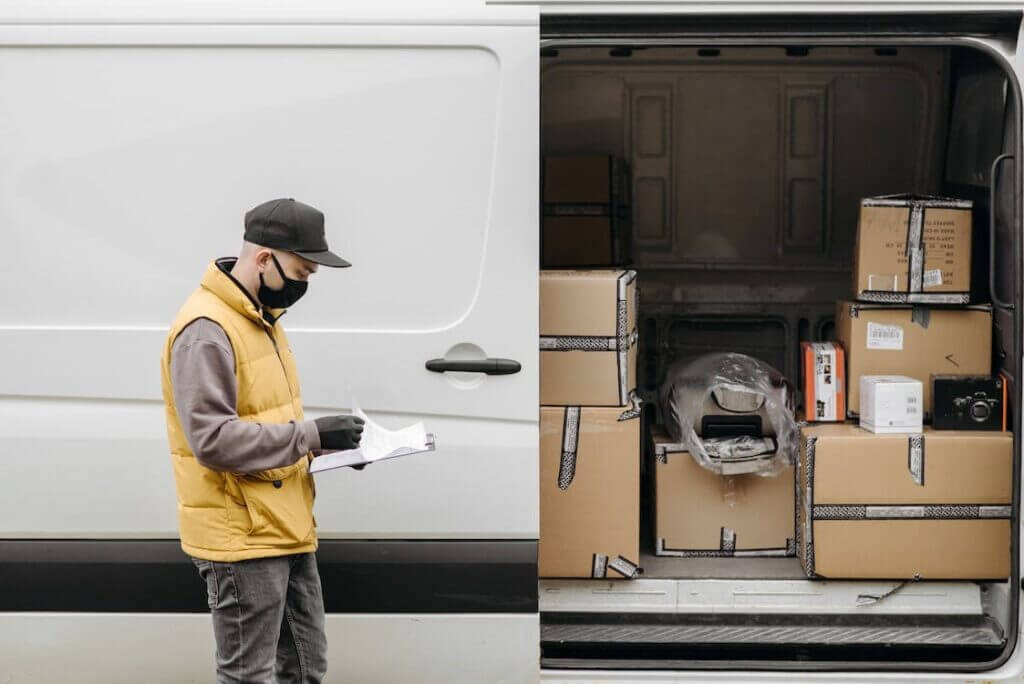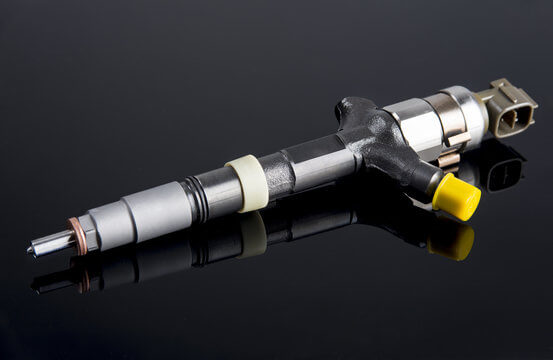Fleet vehicles play a crucial role in various industries, providing businesses with a dedicated set of vehicles to carry out their operations. According to recent statistics, a substantial number of businesses across diverse sectors utilize fleet vehicles.
This is because fleet vehicles significantly contribute to the growth of businesses by enhancing operational efficiency, expanding their service radius to reach a broader customer base and potentially tapping into new markets.
Fleet vehicles often come equipped with advanced fuel management systems, contributing to optimized fuel consumption. Businesses leveraging fuel-efficient technologies using fuel management with proper route planning in their fleet vehicles report notable cost savings.
A fleet vehicle refers to any car, truck, or van that is part of a group owned or leased by a business, government agency, or organization, rather than by a private individual. Let’s find out the challenges and perks associated with fleet vehicle management.

What Exactly Is a Fleet Vehicle?
So, what is a fleet vehicle and how is it different? A fleet vehicle refers to a vehicle that is either owned or leased by a business, government agency, or another organization, as opposed to being owned by an individual or family. These vehicles are used to support the operations of the entity, and they can vary widely in terms of size, type, and purpose.
Some of the types of fleet vehicles used in industries include:
- Cars
Fleet cars are commonly used for tasks such as sales visits, client meetings, and employee transportation. Examples include sedans and compact cars.

- Vans
Vans are versatile and often used for transporting goods, equipment, or a larger number of passengers. Cargo vans and passenger vans are commonly used as fleet vehicles.

- Trucks
Trucks are employed for the transportation of goods, materials, or equipment, especially in industries such as logistics. Pickup trucks, box trucks, and flatbed trucks are some of the common examples used in the industries.

- Buses
Buses are typically used for mass transportation of people, commonly in industries like public transit or tourism.
- Motorcycles
Motorcycles can be used for tasks such as courier services, quick transportation in urban areas, or as part of a security fleet.

- Specialized Vehicles
Some industries require specialized vehicles tailored to their unique needs. Examples include ambulances for healthcare, refrigerated trucks for transporting perishable goods, and firefighter trucks.
- Government Vehicles
Government fleets encompass a variety of vehicles for tasks such as law enforcement, public works, and administrative functions. Police cars and maintenance trucks are all part of government fleets.
- Construction and Heavy Equipment
Heavy-duty vehicles play a crucial role in construction and industrial operations. Examples include excavators, bulldozers, and cranes.

Common Industries That Use Fleet Vehicles
Various industries utilize fleet vehicles to support their everyday operations and enhance productivity. Here’s a list of industries that commonly use fleet vehicles and how they employ them to streamline business processes:
Transportation and Logistics
Fleet vehicles help in the timely and reliable movement of goods, reducing transit times and improving overall supply chain efficiency.
Construction
Transporting construction materials, equipment, and personnel can be made much easier through the use of corporate fleet vehicles, which enable the timely delivery of materials to construction sites, assist in moving heavy equipment, and provide mobility for on-site personnel.
Retail and E-Commerce
Corporate fleet vehicles support last-mile delivery, ensuring prompt and accurate delivery of goods to customers and enhancing customer satisfaction.
Service and Maintenance
Fleet vehicles bring technicians and service personnel directly to client locations, reducing downtime for businesses relying on equipment and machinery.
Healthcare
Fleet vehicles play a crucial role in delivering medical supplies to healthcare facilities, transporting patients, and providing home healthcare services efficiently.
Utilities (Energy and Telecommunications)
Utilities are able to respond quickly to outages, perform regular maintenance with the use of fleet vehicles, and ensure the reliability of energy and telecommunications networks.
Government and Public Services
Fleet vehicles support public transportation systems, maintenance of public spaces, and various municipal services, ensuring smooth functioning of government operations.
Manufacturing
Fleet vehicles are essential for the timely movement of raw materials and finished products, contributing to efficient manufacturing and distribution processes.
Challenges of Managing a Fleet of Vehicles
Fleet managers are facing challenges, especially with rising fuel costs due to industry changes.
1. Fuel Costs
Fuel expenses make up 60% of a fleet’s total costs, and prices are unpredictable. The direct cost of fuel is a significant expense for businesses managing fleet vehicles. Fluctuating fuel prices can impact the overall operational budget.
Employees spending time traveling to gas stations and waiting in line translates to reduced work hours, which can have a cascading effect on overall productivity. Portable fuel tanks can help alleviate this to an extent, but there is another option.
Fuel Logic’s mobile fleet fueling offers a streamlined approach, eliminating the need for trips to gas stations.
Fuel is delivered directly to your fleet vehicles on-site, equipment, reducing downtime and increasing operational efficiency. They also allow businesses to take advantage of bulk purchasing discounts, leading to additional cost savings on fuel.
2. Route Optimization
Managing a large number of vehicles poses a significant challenge in terms of route optimization. Inefficient route planning can lead to increased fuel consumption, longer delivery times, and unnecessary wear and tear on vehicles.
3. Driver Shortages
Driver shortages can lead to delays in operations, increased workloads on existing drivers, and potential negative impacts on customer satisfaction.
Training new drivers incurs additional costs for businesses, including expenses related to education, onboarding, and ongoing professional development.
4. Vehicle Maintenance Costs
According to industry reports, the average cost of maintaining a commercial vehicle can cost up to $210,000 per year, including regular maintenance, repairs, and parts replacement.
Inadequate maintenance can result in breakdowns, unexpected downtime, and higher repair costs, negatively affecting the overall efficiency of the fleet.
5. Environmental Controls
Meeting environmental regulations and controls poses a challenge for businesses operating fleet vehicles. Non-compliance can lead to fines and damage to a company’s reputation. Additionally, there’s a growing demand for eco-friendly solutions to minimize the environmental impact of fleet operations.
Investing in greener technologies, such as electric or hybrid vehicles, and adopting sustainable practices can help businesses align with environmental standards.
Advantages Of Owning Fleet Vehicles
In the world of business, strategic decisions can significantly impact the success and growth of a company. One such decision is whether to invest in and maintain a fleet of vehicles. The benefits of fleet vehicles extend far beyond mere transportation.
Branding Opportunity
Branding is more than just a logo; it’s the identity of your business. Consistent and memorable branding builds trust with customers and establishes a professional image.
Fleet vehicles offer a unique and powerful branding opportunity for businesses. When adorned with eye-catching logos and company information, these vehicles become mobile billboards, raising brand awareness wherever they go.
Whether on the highway or parked at a client’s site, a branded fleet vehicle serves as a constant reminder of your company’s presence.
Cost Transparency
Corporate fleet vehicles contribute to predictable operational costs, allowing businesses to create accurate budgets and forecasts. Monitoring fuel consumption and expenditures helps businesses understand the direct impact on their bottom line.
Transparent operational costs empower businesses to implement cost control measures. By identifying areas of overspending or inefficiency, businesses can make informed decisions to optimize their fleet operations.
Comprehensive Vehicle History
Owning a fleet requires meticulous record-keeping, especially when it comes to vehicle history.
These include:
- Maintenance Records: Timely maintenance ensures the longevity of vehicles and reduces unexpected breakdowns.
- Repair Records: Documenting repairs provides insights into the overall health of the fleet and aids in proactive maintenance.
- Mileage Records: Tracking mileage is crucial for optimizing fuel efficiency and scheduling routine maintenance.
- Incident Reports: In the event of accidents or incidents, detailed records assist in insurance claims and legal matters.
Full Control and Easier Oversight
Owning a fleet provides businesses with full control over various aspects, from vehicle maintenance to fuel costs. By leveraging technology, strategic planning, and continuous monitoring, businesses can maximize the efficiency and cost-effectiveness of their fleet operations.
This level of control facilitates better decision-making and ensures that resources are utilized optimally.
For businesses aiming to enhance their control over fleet operations, Fuel Logic can offer valuable insights into optimizing fuel delivery costs, improving efficiency, and implementing cost-effective strategies.
Efficient Operations
Having a fleet of vehicles for your business is more than just having a way to move things around.
By taking advantage of these benefits, you can not only handle your daily tasks better but also set the stage for your business to grow in the long run. As you make important business choices, think about how well-managing your fleet can positively affect the success of your company.
Protecting Your Investment: Fleet Management with Fuel Logic
In an era where efficiency and sustainability are paramount, businesses are turning to innovative solutions to optimize fleet operations.
Fuel Logic’s on-site fleet fueling service brings the fuel station to your fleet, eliminating the need for vehicles to travel to gas stations, saving valuable time and increasing operational efficiency.
Fuel Logic also provides bulk fuel delivery options, allowing businesses to take advantage of cost-effective bulk purchasing and strategic fueling solutions.
Businesses can realize significant cost savings by minimizing downtime, reducing labor costs associated with refueling trips, and optimizing fuel consumption with efficient delivery methods.
On-site fueling also contributes to environmental sustainability by reducing the carbon footprint associated with multiple vehicles traveling to and from gas stations.
Fuel Logic is committed to empowering businesses for the future, providing tailor-made solutions for efficient fleet vehicle management.
Explore our services and discover how you can enhance your fleet operations in a sustainable and cost-effective manner.
Get 24/7 Fleet Fueling Solutions
Fuel Logic keeps your fleet moving 24/7—reach us anytime for on-site fueling.
FAQs
What are the benefits of using a commercial fleet?
A commercial fleet can enhance operational efficiency, reduce transportation costs, improve vehicle safety, and provide better customer service. It can also help businesses maintain consistent branding and streamline logistics.
What should I consider when buying a fleet?
When buying a fleet, consider factors such as the type of vehicle needed, the total cost of ownership, financing options (purchase or lease), maintenance requirements, and how the vehicles will be utilized within your business operations.
How does the use of fleet vehicles impact business mileage reimbursement?
The use of fleet vehicles can simplify mileage reimbursement, as businesses can track and manage mileage more efficiently through fleet management software. This ensures accurate reimbursement for employees using company vehicles for business purposes.
Are specialty vehicles included in a company fleet?
Yes, specialty vehicles can be included in a company fleet. These are vehicles designed for specific tasks, such as delivery vans, service trucks, or construction vehicles, tailored to meet the unique needs of the business.
What types of vehicles are commonly found in a fleet program?
Common vehicle types in a fleet program include company cars, delivery vans, trucks, rental cars, and lease vehicles. The selection depends on the specific needs of the business and its operational requirements.
How do employee-owned vehicles fit into fleet management?
Employee-owned vehicles may be included in fleet management under certain circumstances, especially if employees use their personal vehicles for business purposes. Companies may implement reimbursement programs or insurance coverage for these vehicles to ensure compliance and safety.
Get 24/7 Fleet Fueling Solutions
Fuel Logic keeps your fleet moving 24/7—reach us anytime for on-site fueling.





